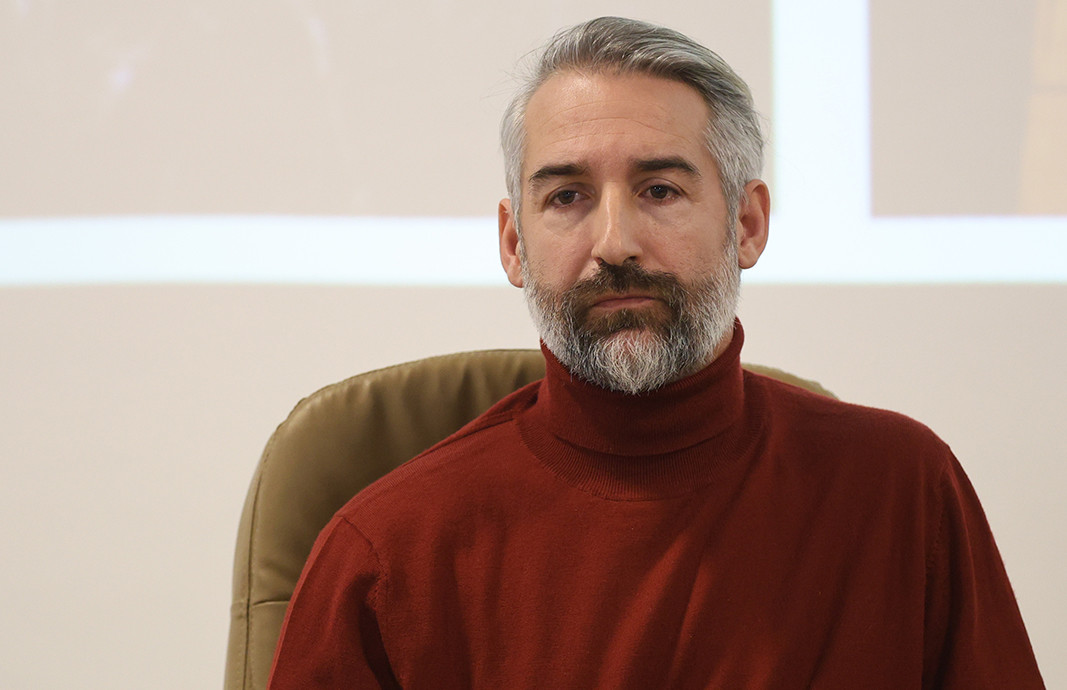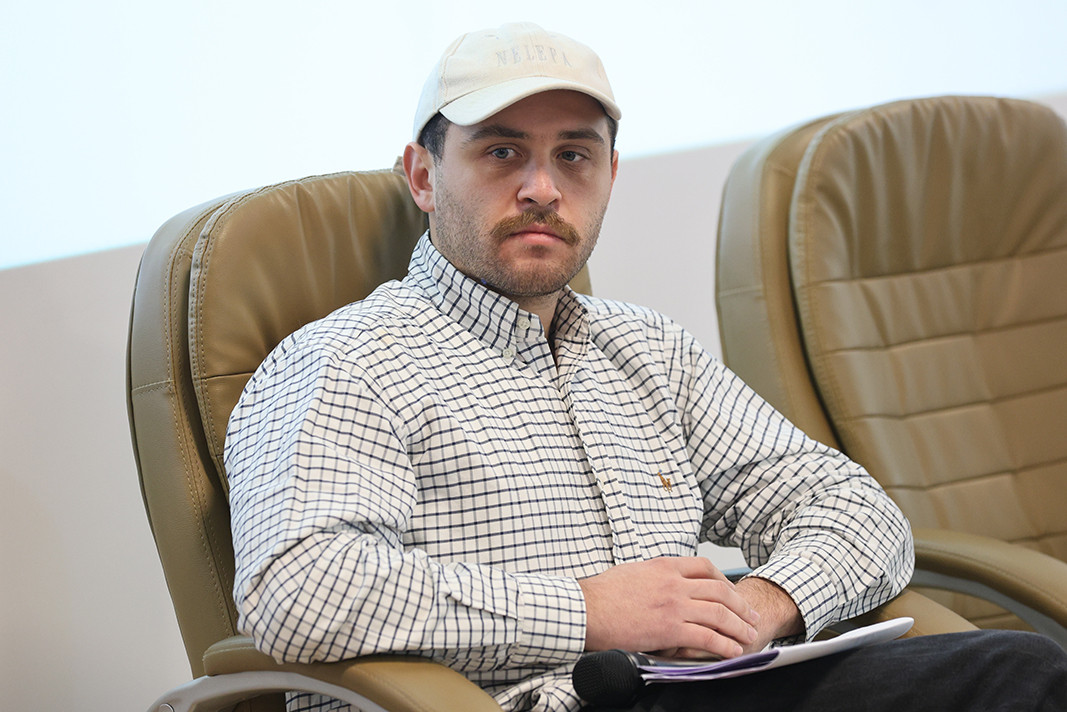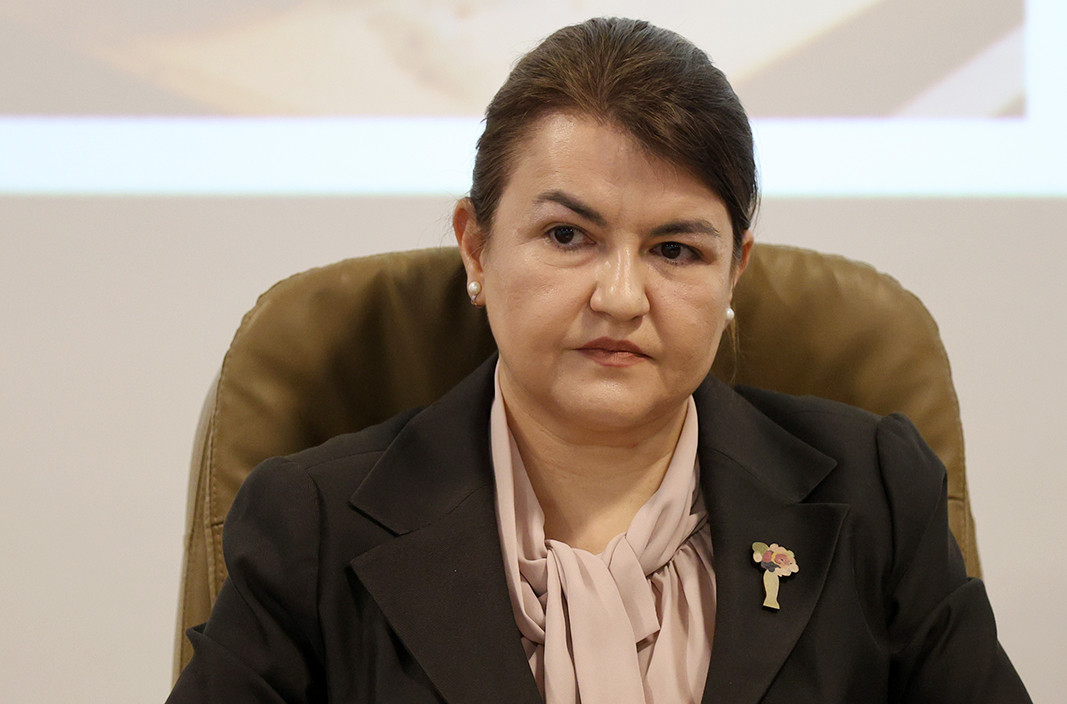For the 3rd time in a row, and the 11th overall in its history, Bulgaria will take part in the Venice Art Biennale with a pavilion of its own. This year, the forum is taking place from 20 April to 24 November in Italy.
Bulgaria will present the project The Neighbours
It is a scientific, visual and interactive study of the memory of the political violence we have inherited from the communist past. It is the work of Julian Chehirian, Krasimira Butseva and Prof. Lilia Topuzova. A very complex and controversial issue for our society today, says Prof. Venelin Shurelov, who chaired the jury, consisting of prominent men and women of art and art critics, which selected the winning project in the national contest of the Bulgarian Ministry of Culture.
“Their attempt to make this problem, connected with political and institutional violence “homely” was key as an approach, and I believe it is something that made an impression on us. The mindful and delicate view of the stories of the victims, the witnesses of these traumatic events is compelling in that it is at the same time meaningful and remote. I would also like to emphasize the role of technologies as a very interesting choice.”
"The Neighbours is the fruit of 20 tears of research and 8 years of collaboration between the three authors who have their feet firmly in the domain of scientific and research work. The project has already been shown at the Sofia City Art Gallery – at the end of 2022, as well as in Toronto and in Princeton, but for the Venice Biennale it has been supplemented and adapted for the Sala Tiziano in Centro Culturale Don Orione Artigianelli. The entire space will be transformed into a genuine “memory” home, with different rooms," says The Neighbours curator Vasil Vladimirov:
“The first room is the living room, the most public space in any home. It is dedicated to the people who have suffered political repressions and who talk about them openly. In this section, visitors will be able to hear clearly the interviews by our authors, there will be screenings and different sounds from the concentration camps that once existed in Lovech and Belene. The second room is dedicated to the people who remember those times but who, for one reason or another, have chosen to keep their silence or to beat about the bush when talking about them. In this space the sounds will be muted and abstract. Until we get to the third room – the kitchen, where everything that resembles kitchen furnishing is painted white. In the kitchen no one is talking. Everything here is reduced to an abstraction, and it is dedicated to the people who were never given an opportunity to talk – the deceased and the people with no memories of those times. There will be different pieces of furniture and objects with mechanisms that can be set in motion by the visitors which will be part of the personal experience of the people coming here.”
“The project sheds light on a dark chapter in Bulgaria’s history, but also gives food for thought on a wider range of issues concerning identity, belonging and the consequences of political repression, something which is not isolated to communist regimes alone.”
Interestingly, this will be the third consecutive time the country will be presented at the forum with works by artists living abroad. On the borderline of two worlds, in the words of Prof. Lilia Topuzova who teaches history at the University of Toronto, and who has researched the connection between political violence, silence and trauma for many years. Julian Chehirian travels between Philadelphia, the US and Sofia. He is a PhD Candidate in the History of Science at Princeton University. Krasimira Butseva lives in London. She is a senior lecturer at the London College of Communication, University of the Arts London, and has spent the past seven years researching and rationalizing East European communism. The Neighbours is the result of the collaboration of artists and researchers and it goes beyond any traditional work of art. 
“I believe that if we, the people working in the domain of science, are unable to explain our research work to a wider audience, then it will never be comprehended,” says Prof. Lilia Topuzova. “To my mind, that is the most natural way to narrate history.”
“Our project offers an insight into the past and its rationalization,” adds Dr. Nadezhda Jakova, who is commissioner of the Bulgarian pavilion, in an interview with Radio Bulgaria.
“It was created by a team of people who have not witnessed these processes directly, and who are doing their research in retrospect. That is why I am expecting objectivity in their view of history.”
“The present is highly contradictory. Many of the living witnesses of the times the work treats display an indifference to memory, to the ghosts of the past, and seem to repeat the same historical “slips of the tongue” over and over again unthinkingly, and that again makes victims of us. I firmly support the authors’ creative idea that our political past is not a fading memory, that it is a very palpable and sensitive present. There will always be polar interpretations of the past. We, as a society obviously display such a polarity. We see so many points of polarization which get activated precisely when we try to reawaken the debate on the subject. I believe any discourse on this is important and it is belated! I would say now is the time because, ideologically, we need to have a counteroffensive, to rebuff the ghosts of the past, a rationalization of those traumatic points in our history if we want to avoid repeating them,” Prof Shurelov says.
Vessela Krasteva
Translated and posted by Milena Daynova
Photos: BTA
An exhibition titled "PICASSO: Graphics from the National Gallery Collection " will open at 18:00 pm this evening at Kvadrat 500 in Sofia. The National Gallery's collection includes twenty-one graphic works by Picasso, thematically connected to his..
Turning a new page, 2025 comes with hope and faith in better days, in peace that will prevail, in happiness and love. On the first day of January - Golyam Sechko, as it is known in the Bulgarian tradition - the mood is upbeat and smiles are everywhere...
"Thank you to Petar Angelov, Michaela Velichkova, Sonia Chakarova and all the members of the representative folklore ensemble Shevitsa for the wonderful performance they gave to the people of Tsaribrod on the occasion of the upcoming holidays," wrote..
An exhibition titled "PICASSO: Graphics from the National Gallery Collection " will open at 18:00 pm this evening at Kvadrat 500 in Sofia. The..

+359 2 9336 661
